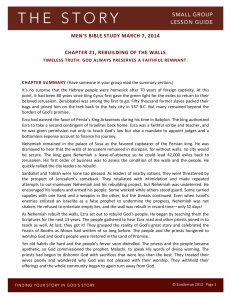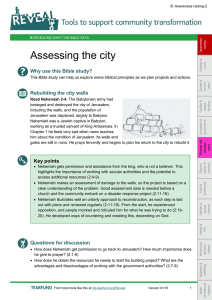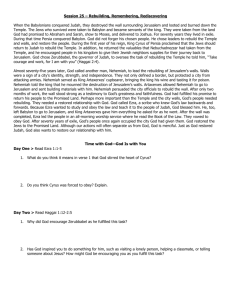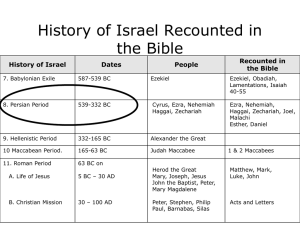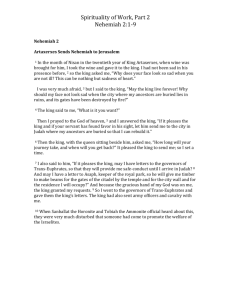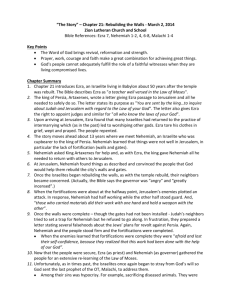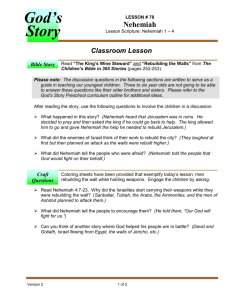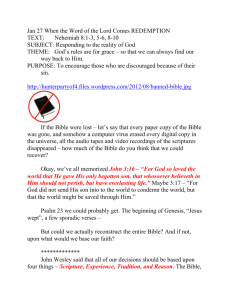Rebuilding the Walls @ Discussion Questions
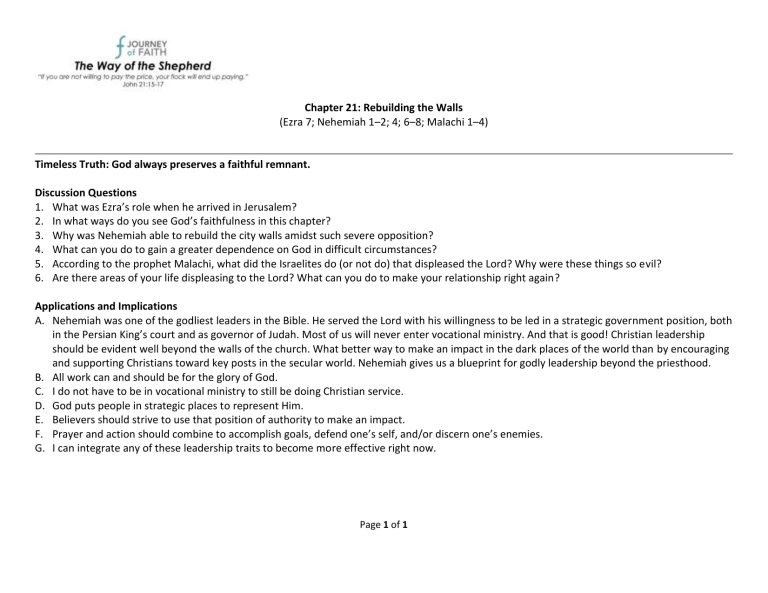
Chapter 21: Rebuilding the Walls
(Ezra 7; Nehemiah 1–2; 4; 6–8; Malachi 1–4)
Timeless Truth: God always preserves a faithful remnant.
Discussion Questions
1.
What was Ezra’s role when he arrived in Jerusalem?
2.
In what ways do you see God’s faithfulness in this chapter?
3.
Why was Nehemiah able to rebuild the city walls amidst such severe opposition?
4.
What can you do to gain a greater dependence on God in difficult circumstances?
5.
According to the prophet Malachi, what did the Israelites do (or not do) that displeased the Lord? Why were these things so evil?
6.
Are there areas of your life displeasing to the Lord? What can you do to make your relationship right again?
Applications and Implications
A.
Nehemiah was one of the godliest leaders in the Bible. He served the Lord with his willingness to be led in a strategic government position, both in the Persian King’s court and as governor of Judah. Most of us will never enter vocational ministry. And that is good! Christian leadership should be evident well beyond the walls of the church. What better way to make an impact in the dark places of the world than by encouraging and supporting Christians toward key posts in the secular world. Nehemiah gives us a blueprint for godly leadership beyond the priesthood.
B.
All work can and should be for the glory of God.
C.
I do not have to be in vocational ministry to still be doing Christian service.
D.
God puts people in strategic places to represent Him.
E.
Believers should strive to use that position of authority to make an impact.
F.
Prayer and action should combine to accomplish goals, defend one’s self, and/or discern one’s enemies.
G.
I can integrate any of these leadership traits to become more effective right now.
Page 1 of 1


